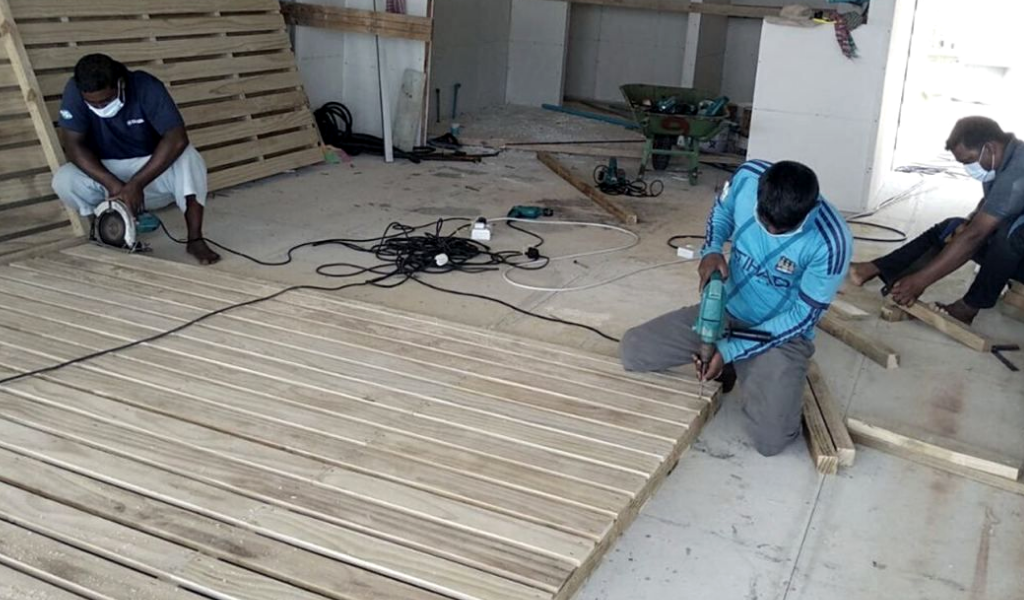
What Should Be The ‘New Normal’ In The Construction Industry?
Construction have come to become an increasingly important sector in the Maldivian economy. In the past several years’ construction sector GDP hovered around the second or third highest in the economy. However, the sector has been adversely affected from the onslaught of the COVID-19 pandemic as unprecedented prevention measures had to be taken which severely restricted people’s movements, business operations, and economic and social activities.
Migrant workers, account for the vast majority of the construction sector’s workforce. It is common knowledge that most of them face a range of entrenched abuses from employers especially being subject to unsafe living and working conditions in addition to excessive work demands. From 15th April, when the Greater Male’ Area was put under lockdown, all the construction operations in the area were suspended in addition to work at other sites.
After guidelines were formulated by the Health Protection Agency (HPA), construction work was allowed to resume after obtaining permit from relevant authorities. When applying for the permits to resume work under the lockdown measures, specific documents and conditions were to be met by the contractors. Permits we held even for major firms until they resolved such irregularities as employing illegal migrants which highlighted the dysfunctional monitoring of situation of construction workers at new heights.
The prevalent COVID-19 pandemic has required every industry to adapt to new normal ways of work, and construction Industry is not spared. With the additional protocols, the contractors will be bearing additional costs but it is inevitable in the best interest of everyone.
Accordingly, Director of Planning & Development at Sun Siyam Resorts, Ms. Aishath Shimani, has shared some exemplary strategies and safety guidelines that they adhere to at Sun Siyam projects sites;
· Performing regular disinfection of workers’ accommodation quarters, doing routine temperature checks and even have quarantining mechanisms set for symptomatic workers.
· Their worksites are isolated and therefore, a safe local bubble where prevention guidelines are followed. Workers work in small groups to limit mass contacting, and there is a general understanding on limited casual gatherings.
· Instructing workers regularly on the latest guidelines set by authorities in their native language
· Their project managers are encouraged to work with their management to ensure a smooth transition for the organization and employees as these new norms will create new cultures. It is important to set the tone by emphasizing concern for employees with compassion, openness and honesty during these challenging times.
Although this is not of a similar situation to the site conditions in the Greater Male’ Area and perhaps even other islands, with adaptation, there will be always something of value to take. Some procedures which are instructed to presently follow are plenty but we stress that importance specifically on setting a monitoring mechanism inside the construction sites to ensure whether workers follow all the safety and guidelines.
Whilst we work to ‘build back better’, retaining some of the strict new normal procedures and its adherence could possibly open a pathway for a better life to migrant construction workers in the Maldives.
(Photos: Ms. Aishath Shimani)